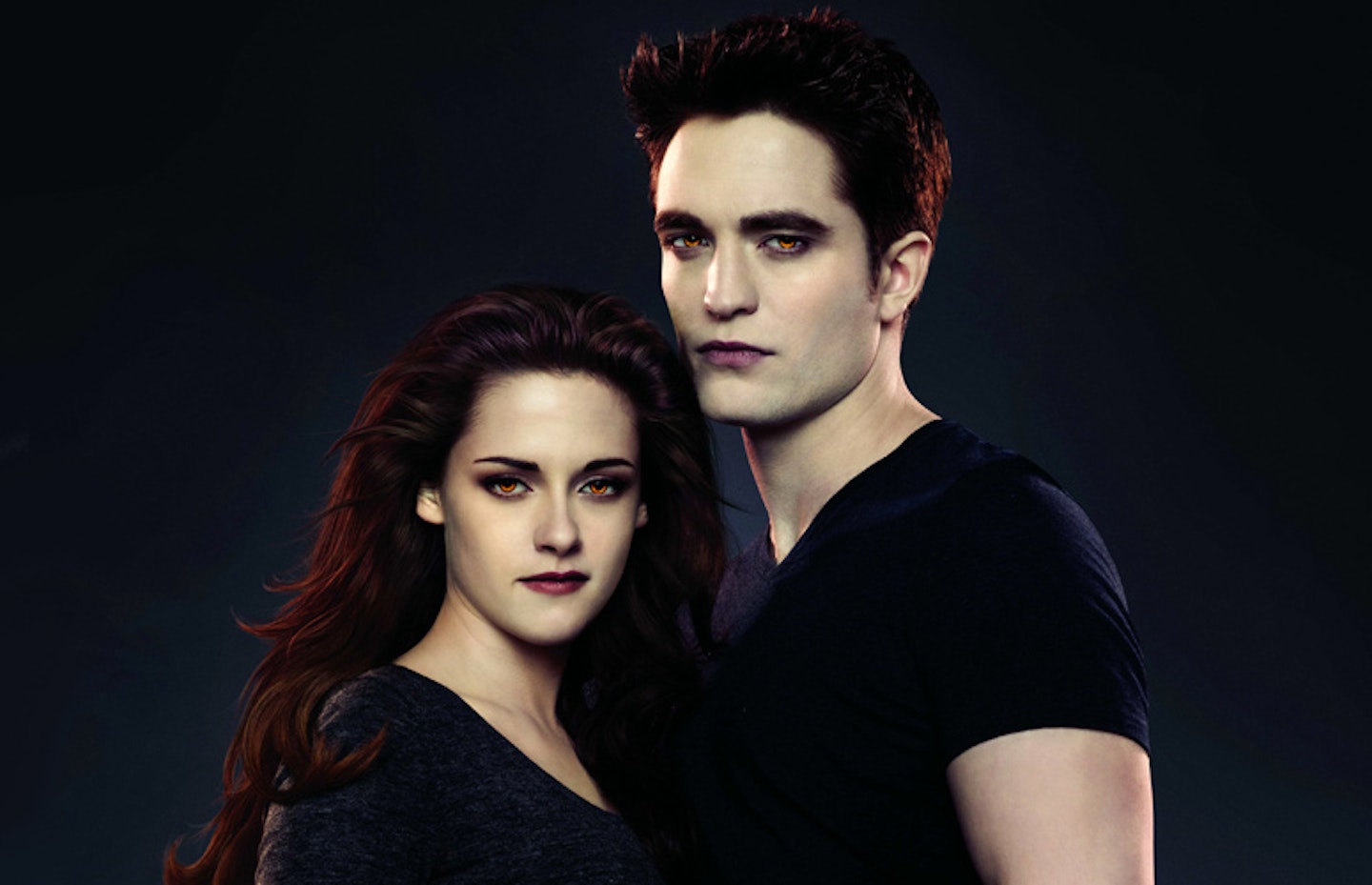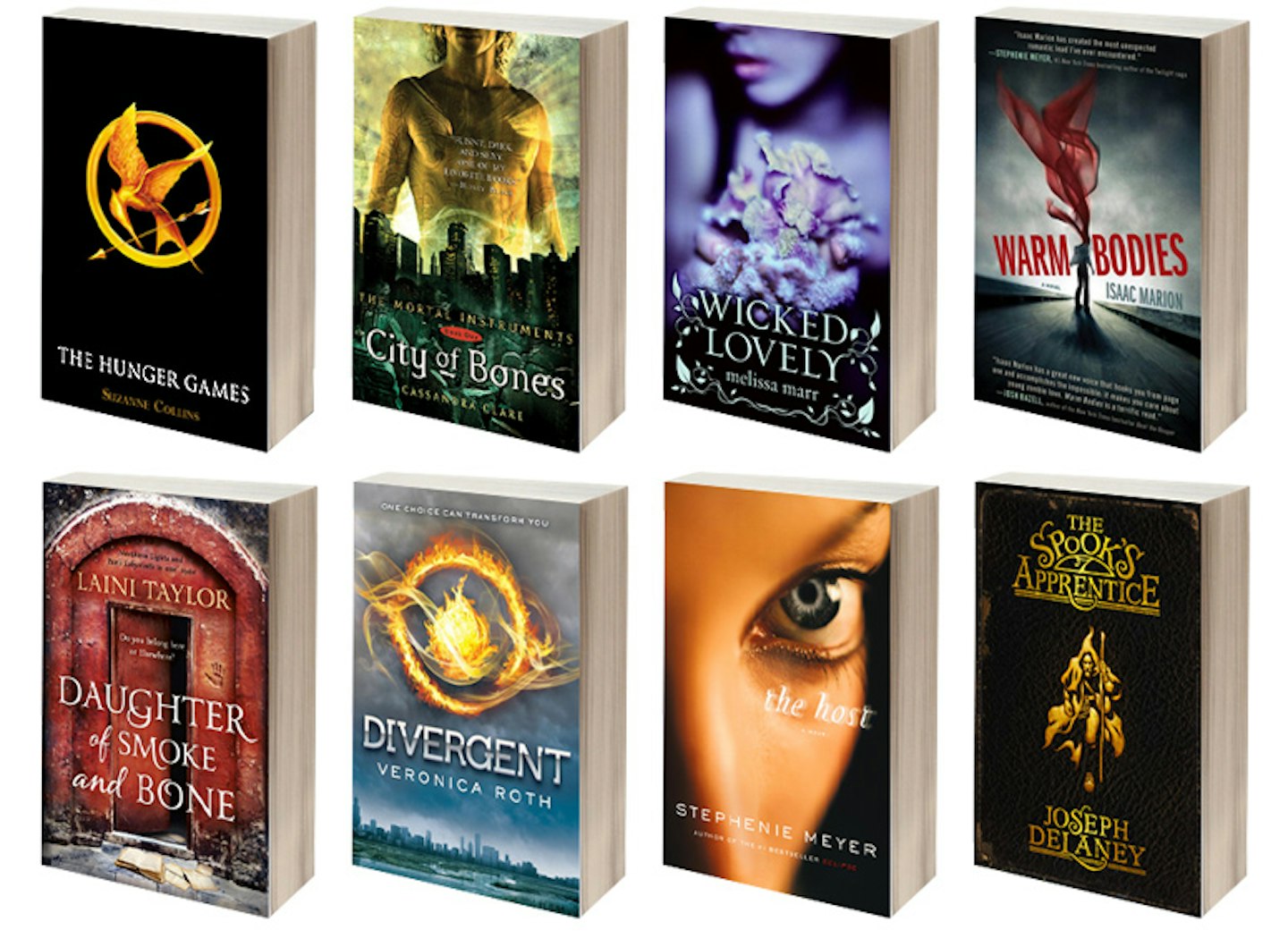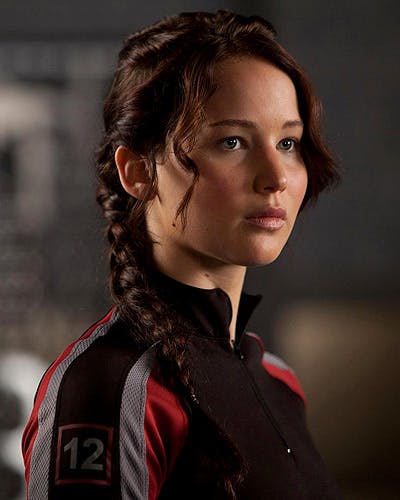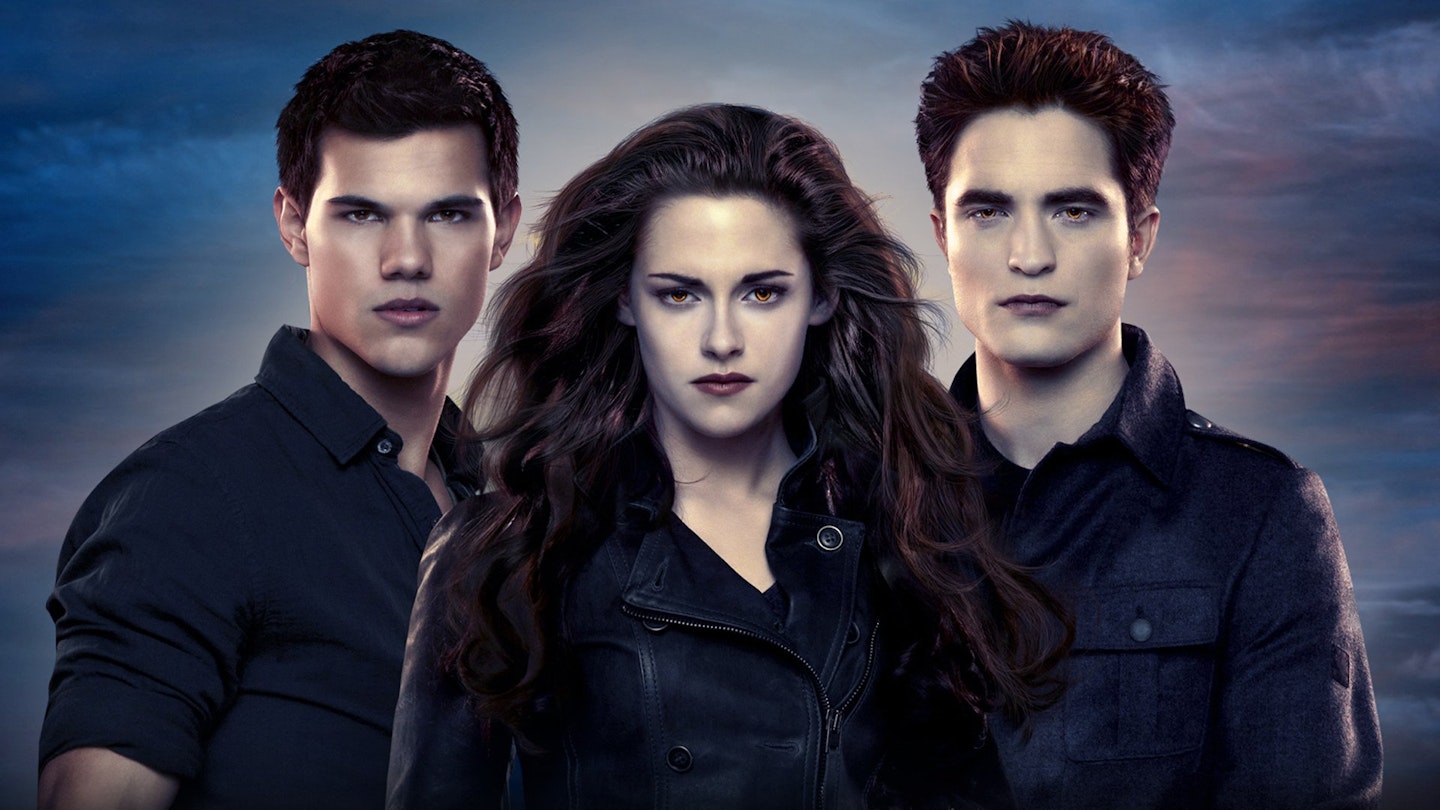
The Twilight series is a pivot point in cinema, and it's time we acknowledge it as such. It was the first film of a trend that is becoming a wave that may become, in the distant future, something perfectly normal: the female-focused franchise. Twilight was the first multi-part, billion-dollar franchise that was aimed at and led by women, and which hit big at the box office. There had been a few direct-to-DVD cartoon series (Disney's TinkerBell efforts), a few rom-coms to get a single sequel (Bridget Jones, for instance) and a few minor teen efforts, but since Twilight hit we've had The Hunger Games and attempts to launch girl franchises in everything from Confessions Of A Shopaholic (admittedly that didn't make it beyond a first effort) to Snow White And The Huntsman to, soon, 50 Shades Of Grey (the best-selling book in this country ever. Make of that what you will). Instead of standing around marvelling and scratching their heads when a Mamma Mia! or a [Devil Wears Prada does well](http://www.empireonline.com/empireblogs/words-from-the-wise/post/p281ost/p281), filmmakers are actively seeking out properties that target women and have sequel potential.

 The highest-grossing films of all time are overwhelmingly the ones that appeal to both sexes.
The highest-grossing films of all time are overwhelmingly the ones that appeal to both sexes.

 This is not to say that a franchise or a sequel necessarily in itself a good thing, and no one is saying that franchise-crafting is the best or only way to make films. But the new approach marks a shift, and perhaps the beginnings of a sea-change, in how big tentpole films are made and who they're made for. It's a truism and a cliche that blockbusters over the past couple of decades have been aimed and marketed primarily at teenage boys. Star Wars is generally credited as the first film to establish this fact, rightly or wrongly, and it’s been the driving force behind everything from Batman to Transformers to American Pie. But boys have become a less reliable audience than they were 10 or 20 years ago. That demographic is now, often, staying at home and playing games as their principal form of entertainment. They still go to the cinema, of course, for films that appeal to them - but their attendance in droves is no longer a guarantee and no longer the only reliable engine of box-office success.
This is not to say that a franchise or a sequel necessarily in itself a good thing, and no one is saying that franchise-crafting is the best or only way to make films. But the new approach marks a shift, and perhaps the beginnings of a sea-change, in how big tentpole films are made and who they're made for. It's a truism and a cliche that blockbusters over the past couple of decades have been aimed and marketed primarily at teenage boys. Star Wars is generally credited as the first film to establish this fact, rightly or wrongly, and it’s been the driving force behind everything from Batman to Transformers to American Pie. But boys have become a less reliable audience than they were 10 or 20 years ago. That demographic is now, often, staying at home and playing games as their principal form of entertainment. They still go to the cinema, of course, for films that appeal to them - but their attendance in droves is no longer a guarantee and no longer the only reliable engine of box-office success.
Combined with the threat of piracy and that of home entertainment, the studios have been keenly aware that even where takings are bigger, audiences are getting smaller. Adjust for inflation and suddenly Avatar falls from the biggest film ever to 14th on the list, Gone With The Wind still marking a high-point in movie-making history. It’s become increasingly obvious that Hollywood can’t afford to cater only to the (hitherto) most reliable and lucrative market.
What's more, the boys’ films seem to demand higher and higher budgets. With the exception of occasional comedies that hit big, male-oriented blockbusters tend to have huge effects costs (and most of those hit comedies have big star budgets). These higher price tags are, at least partially, connected to games once again. Game designers can take players to alien worlds, total wars, exotic locations or historical periods for no more than the cost of a contemporary-set game (less, maybe, since creating photo-realistic reality is particularly challenging for designers). If Hollywood is going to compete, it has to be bigger, better and more exciting – and that means money.
So the studios are delighted that a new audience has emerged who turn out in big numbers for cheaper films. Make fun of ‘crazy’ Twi-hards all you like, but around that hard-core of fans there's a much larger, more balanced crowd for whom Twilight is merely something they enjoy with varying levels of pride. And incidentally, you shouldn’t make fun of those fans. They’re no crazier than the Trekkers, Star Wars fans and comic-book guys who drove geekdom to its current high status in the culture. In the same way that a teenage love of Transformers does not equate to a lack of intelligence / soul / the hope of one day growing up, Twilight has sometimes been a gateway drug into better geekery for girls. Like Potter before it, Twilight’s a gateway (geekway?) drug. Liked Twilight? Try Dracula, The Lost Boys. Try Near Dark.
Hollywood's salvation may just be this new crowd, still often indifferent to gaming and at least behind the guys in terms of addiction to it; still going to the cinema in big numbers whenever someone bothers making a film for them, and also still signalling what they're interested in by reading books in larger numbers than any other social group.

The fact that women, especially young women, are reading in huge numbers may be key. Hollywood has consistently failed (so far) to turn games into good movies, and while their comics record is much better, they're getting to the bottom of the bucket of obviously commercial comic-book characters. Sure, they're still trotting out superheroes like they're on fire (which sometimes they are) but they've gone through the big reliable characters and are beginning to start rebooting those and teaming them up in new groupings. Those left unfilmed are, for the most part, not massively familiar names (Moon Knight, anyone?). Books matter again as a source of film inspiration. Of course, Harry Potter proved a gargantuan success - but a series like that, on page or on screen, only comes along once in a generation and actually isn't as replicable as studios might like. Although executives are searching desperately for "the next Harry Potter", attempts to replicate that formula have floundered (Percy Jackson, The Vampire's Apprentice, The Spiderwick Chronicles, arguably The Golden Compass).
What is working, however, are adaptations of Potter's literary successors, those books that don't stick to the model of JK Rowling's series but which Potter fans turned to once they finished with Harry and friends. Those who became addicted to reading thanks to the boy wizard cast about for their next series as they've grown older, and they found stuff like Twilight, The Hunger Games, The Host (due soon), Divergent (in development with Summit), Daughter Of Smoke And Bone (Universal has the rights), The Spook's Apprentice (filmed as The Seventh Son), The Mortal Instruments (shooting now), Wicked Lovely (in development), Warm Bodies (in post-production) and more. Lots of these stories have female protagonists, but they're not girly, (all) romantically neurotic or endlessly obsessed with shoes and boys; they're actual characters. And they're sufficiently dissimilar that we expect them to have a higher hit-rate than the Potter-clones. We're potentially looking at mainstream films aimed at women that aren't shallow or offensive!
And what we're also starting to see, in an even bigger change, is that men may be tempted to go see the films that result. The high water mark so far is The Hunger Games, which is the best of these films in terms of quality and one of the most successful in terms of box office. Three more instalments are already underway (the final book has, inevitably, been split in two) and while the fans are not as eardrum-shattering as the Twi-hards, they do seem as enthusiastic in a quieter way. The Hunger Games, too, was a film that men didn't have to be embarrassed about seeing, what with the action and life-or-death stakes and general lack of moping about over sparkly vampires, but that girls could still watch and see themselves in. So maybe it's not female leads that turn male viewers off, but bad female leads.
%20%20*The%20Hunger%20Games,%20too,%20was%20a%20film%20that%20men%20didn't%20have%20to%20be%20embarrassed%20about%20seeing.*%20%20
What we might also see thanks to Twilight and a string of female-focused hits is Hollywood beginning to treat women like a demographic that matters at all in blockbuster films. As an example of how this can work, you might have noticed in the past few years that more and more blockbusters are globe-trotting to China or Russia (for example: Battleship, The Dark Knight, Mission: Impossible - Ghost Protocol, The Karate Kid, The Darkest Hour and Transformers: Dark Of The Moon all feature scenes in one of the two) because China and Russia are now important markets for Hollywood blockbusters. Following that logic, if women become a valuable demographic for the studios, maybe we'll see women in male-targeted action movies or thrillers not simply defined as Wife, Girlfriend or Mother. Maybe the character composition of these films will change from a statistically unrepresentative 25% female (or so) to a more-like-it 50%. Judging by Dredd this year, female characters don’t have to derail the manliness.
If Twi-hards are the tip of a demographic iceberg of potential filmgoers, they could prove to be the saviours of the studios and a transformative force in big-screen cinema. If the big studios can be find a healthy audience for their mid-budgeted, female-friendly novel adaptation, then maybe they'll have the money to make Halo or The Authority. If studios successfully recruit new a reliable new film-going demographic, that's more money in the coffers and a more secure base on which to risk ambitious, big-budget concepts from original filmmakers.
Twilight is a good thing, long term. It could usher in a slightly more equal era of cinema going, and could see better films being made that appeal to much of the same audience but don't exclude men. If it offers a new and alternative model for filmmaking sucess, that could make Hollywood more flexible and more inclusive - just as studios are also trying to attract older fans with the likes of Best Exotic Marigold Hotel and Quartet. Ultimately, any attempt by Hollywood to widen its focus and cater to a bigger crowd must be a good thing for the health of cinema overall.
We’re still not convinced about the whole magic-werewolf-baby-love thing though.
